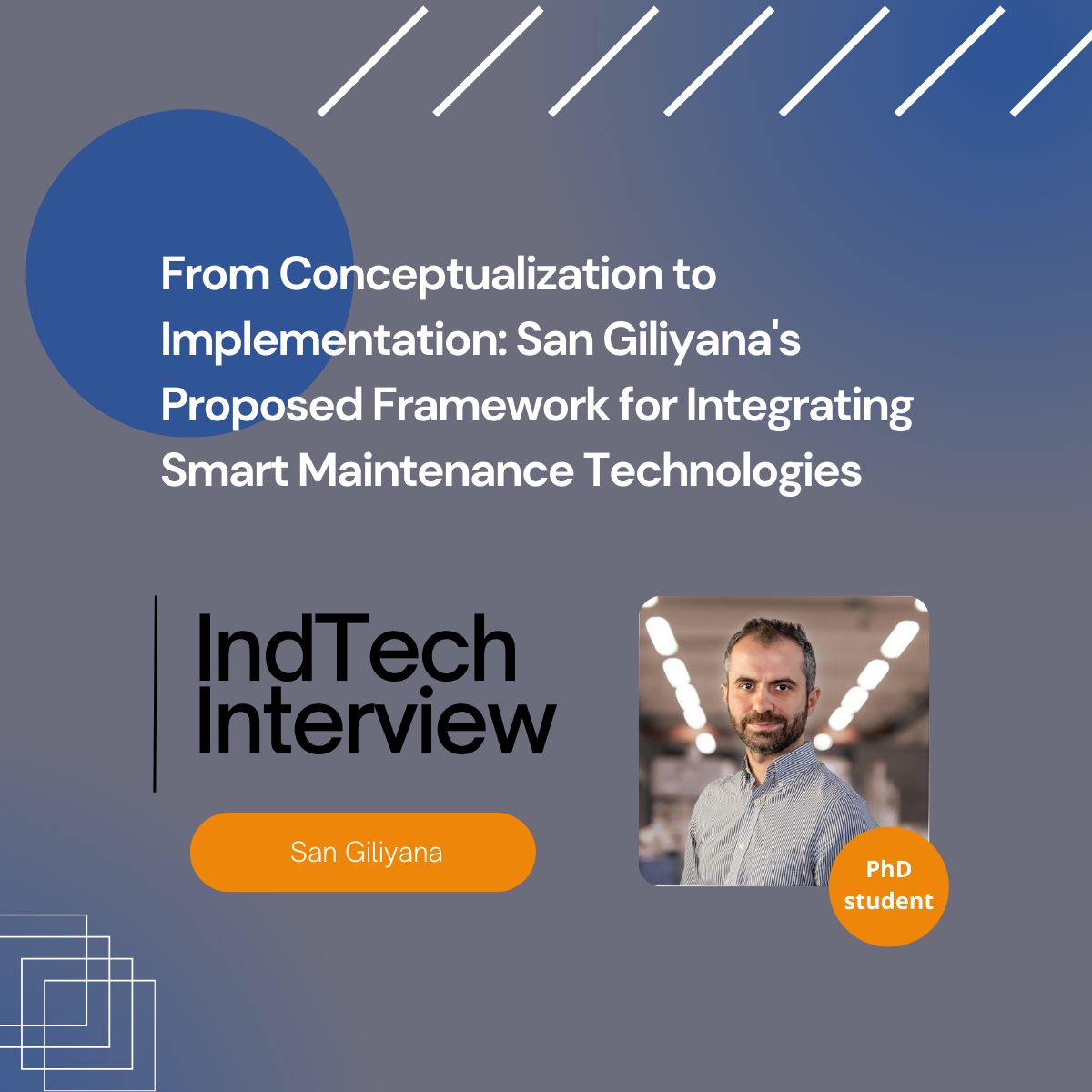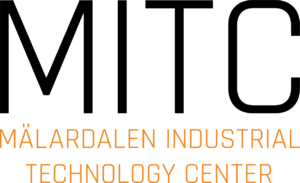From Conceptualization to Implementation: San Giliyana's Proposed Framework for Integrating Smart Maintenance Technologies
Explore the world of smart maintenance technologies with San Giliyana, a Ph.D. student at the IndTech Graduate School and MITC. In this interview, Giliyana explains the impact of AI, IIoT, communication protocols, and augmented reality on manufacturing. Discover real-world examples and strategies for adopting these technologies.
The licentiate thesis undertaken by San Giliyana focused on exploring the implementation, challenges, enablers, and benefits associated with smart maintenance technologies within the context of Industry 4.0. “The objective of my research is to generate new knowledge in academia regarding the implementation, challenges, enablers, and benefits of using smart maintenance technologies”, Giliyana explains.
Despite a decade of discussion, the manufacturing industry still faces challenges in implementing smart maintenance tech aligned with Industry 4.0.
The identified benefits include data-driven decision-making using AI, machine connectivity through IIoT, digitalized maintenance instructions, and remote maintenance using augmented reality (AR), all aimed at improving maintenance practices. However, despite prolonged discourse on Industry 4.0, the research found that the manufacturing industry is facing challenges in adopting smart maintenance technologies. Therefore, a structured conceptual implementation process has been proposed to streamline the integration of these technologies into manufacturing operations.
“Smart maintenance technologies make life more convenient and help conserve energy, reduce waste, and extend the lifespan of appliances and vehicles”
The potential of smart maintenance technologies extends beyond the manufacturing industry. It could transform daily interactions with appliances, resulting in more convenient, efficient, and environmentally friendly experiences, promoting energy conservation, waste reduction, and extended appliance lifespans. In practical terms, appliances could self-diagnose problems, schedule maintenance, and alert users to potential issues before they escalate.
The research has identified challenges, enablers, and benefits of smart maintenance technologies, proposing a conceptual implementation process for the manufacturing industry. To address common knowledge gaps during technology implementation, a testbed for smart maintenance technologies was developed at MITC to share technical knowledge with the manufacturing industry. Demonstrations held in February 2023 showcased the testbed to 43 individuals from manufacturing companies, including SMEs and large corporations.
For manufacturing organizations looking to implement smart maintenance technologies, knowledge acquisition should be the first step. This will help overcome the common lack of knowledge when adopting new technologies. Operational efficiency is measured by reducing Mean Time to Repair (MTTR) and Mean Time Between Failure (MTBF), key performance indicators reflecting improvements in traditional, preventive, and corrective maintenance.
The developer’s emphasis on creating intelligent maintenance technologies has the potential to provide people with a “superpower”.
The problem-solving approach of smart maintenance technologies, which focuses on predictive analysis, automation, and optimization, can be applied to everyday challenges experienced at work, home, or on the go. The developer’s emphasis on creating intelligent maintenance technologies has the potential to provide people with a “superpower”. These advancements have the potential to greatly enhance people’s lives by increasing their efficiency, convenience, and even entertainment options. Giliyana thinks, “I would choose the capability to make informed and rational decisions based on data and facts instead of being influenced by emotions.”
“MITC, a collaborative platform and technology testing lab, has provided an ideal environment for individuals to research new technologies”, the researcher says. Establishing a maintenance network comprising more than 35 manufacturing companies has facilitated data collection and identification of challenges, leading to the definition of smart maintenance projects.
San Giliyana’s research offers valuable insights into smart maintenance technologies and their potential impact on Industry 4.0. The conversation presents a compelling narrative of innovation and possibility, leaving us with a sense of anticipation for the exciting possibilities that lie ahead in reshaping industries and daily lives alike.
Interviewed and written by Alba Torrado
MITC builds on collaboration between the manufacturing industry and academia (mainly Mälardalen University). Results are created where different competences, capabilities and technologies meet, and since 2011 MITC has been generating results through building needs-driven co-operation for SMEs development, training, research and technical projects together with our industrial partners.

